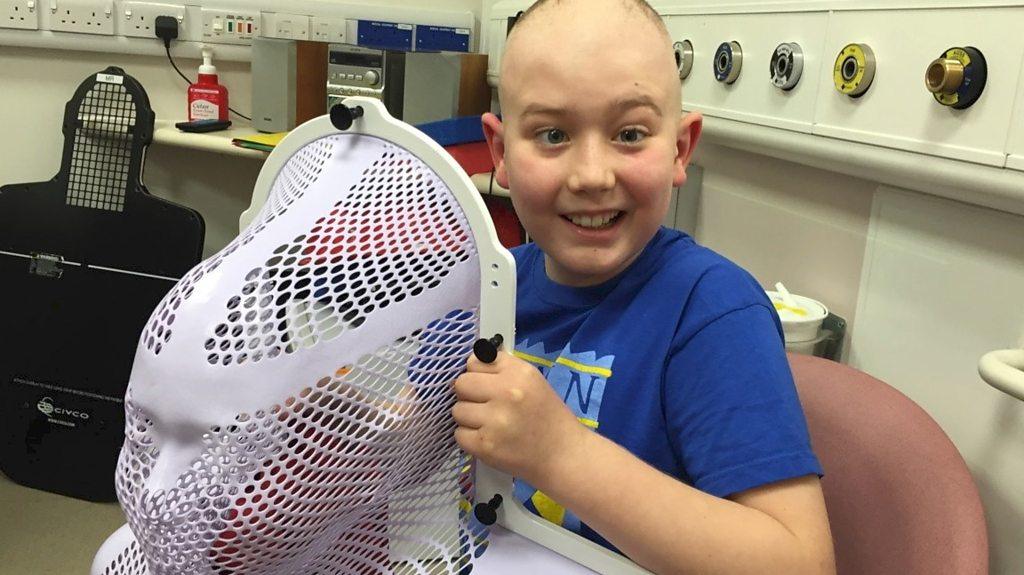Brain cancer research plea made by family of Ollie Gardiner
- Published
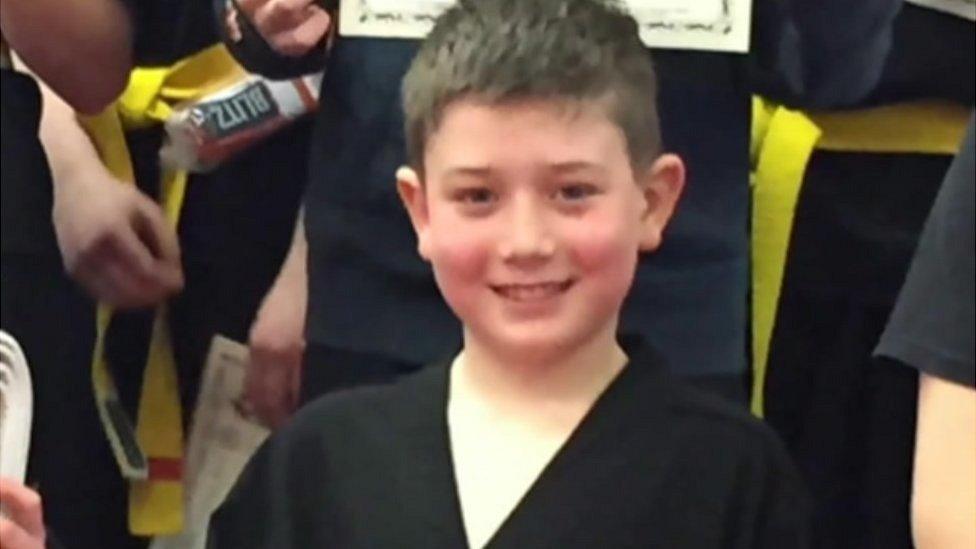
Ollie Gardiner's family spearheaded a fundraising campaign to help pay for his treatment and medical research into his type of brain tumour
The family of a boy who would have celebrated his 18th birthday this week has said more money and research was needed to help prevent brain cancers.
Ollie Gardiner, from Aston Clinton in Buckinghamshire, died aged 13 in 2017 after a relapse of his brain tumour.
A fundraising drive secured £500,000 to pay for treatment, with nearly £200,000 of it eventually donated to research.
The government said it was providing £40m over five years to fund brain cancer research.
Peter Gardiner said he promised his dying son he would find a cure for the type of cancer he had.
"We are hoping there will be some treatment to come out of this," he said.
Ollie, who he described as "incredibly cheeky", had been diagnosed with a medulloblastoma - the most common high-grade brain tumour in children - when he was 10 and underwent years of gruelling treatments.
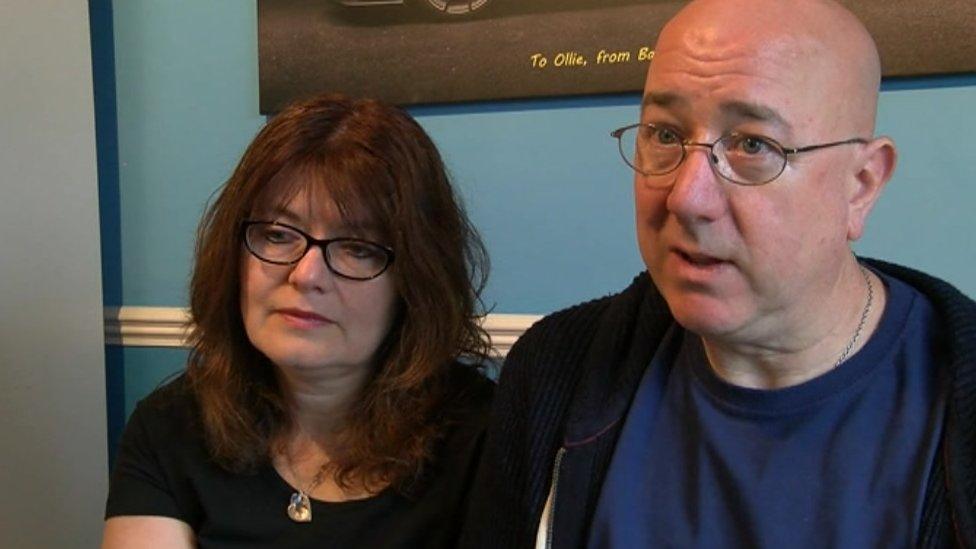
Ollie's parents, Jane and Peter, said their son had left a legacy behind to give other sufferers hope
Donations were used to pay for pioneering treatment in the UK and Germany, with £187,000 later spent on funding a postdoctoral researcher.
Last year, the researcher's team had a breakthrough, external when they found a new way to cut off energy to cancerous brain tumour cells to prevent them from growing.
Scientists hope it will lead to new treatments for the aggressive type of cancer.
"If we can save just one life, then that to me would be the biggest legacy Ollie could leave," said Mr Gardiner.
Ollie would have turned 18 on 31 May and his parents said it has been a poignant occasion.
"It's a huge moment... as he would have been an adult," said his father.
"We've had a year of seeing his friends turn 18 and people saying how proud they are... and we've been denied that by this damn disease.
"One day I was not a cancer parent and the next day I was and it's a stunning gear-change in life - and a stunning eye-opener when you realise just how under-funded and under-researched it is."
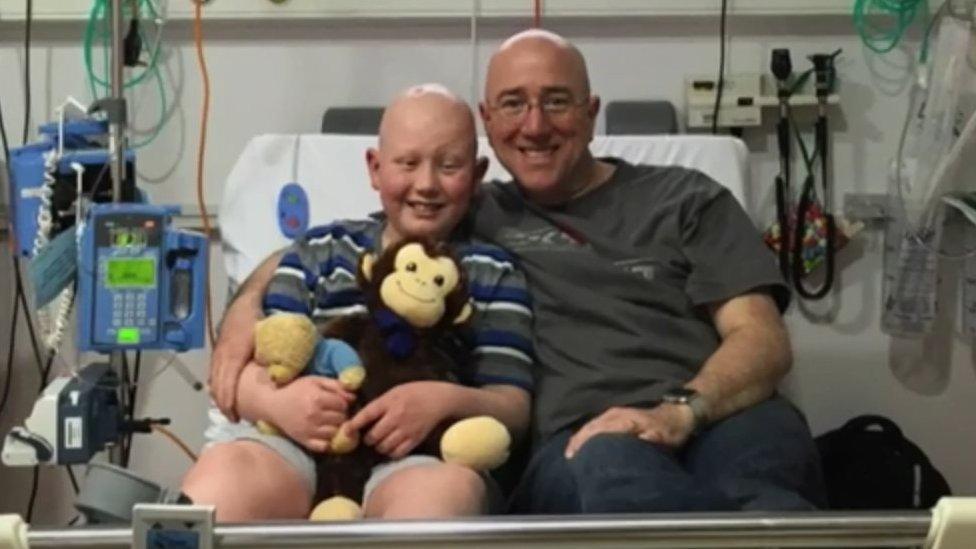
Ollie, pictured with his father Peter, underwent operations, chemotherapy, radiotherapy and immunotherapy
Hugh Adams, from the Milton Keynes-based Brain Tumour Research charity, said: "Historically just 1% of the national cancer research spend has gone into brain tumours - that's not going to get us closer to a cure.
"We need more investment into this area, we need more investment from government, more campaigning and more wonderful fundraisers like those in memory of Ollie Gardiner."
The Department of Health and Social Care said brain tumours were a difficult research area with a relatively small research community and it wanted to receive funding applications.
In a statement, it said: "We know brain cancer can be a devastating disease.
"We have redoubled our efforts to find therapies and new treatments and in 2018 announced £40m funding over five years, which is supporting brain cancer research.
"We are supporting the research community working on brain cancer by funding every single high quality research request in this field and providing research training for practising doctors."

Find BBC News: East of England on Facebook, external, Instagram, external and Twitter, external. If you have a story suggestion email eastofenglandnews@bbc.co.uk
Related topics
- Published20 March 2021
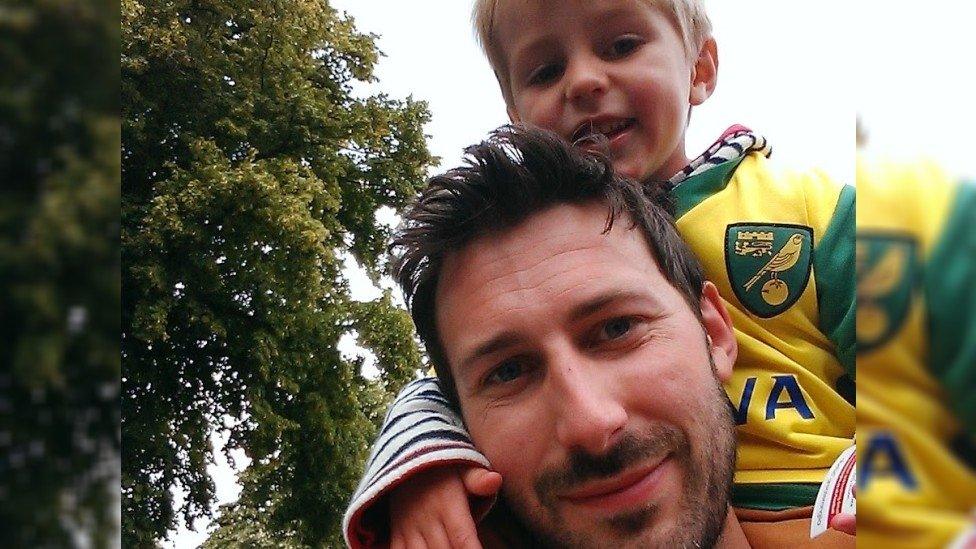
- Published24 December 2019
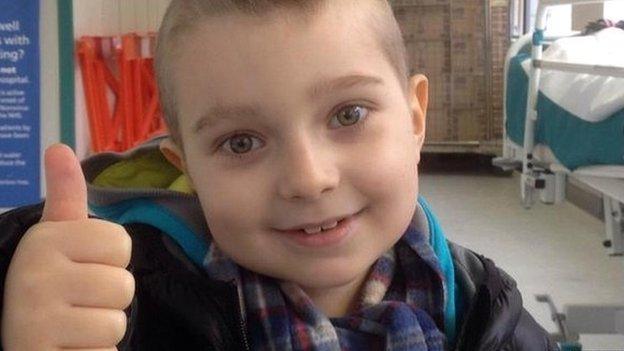
- Published19 November 2019
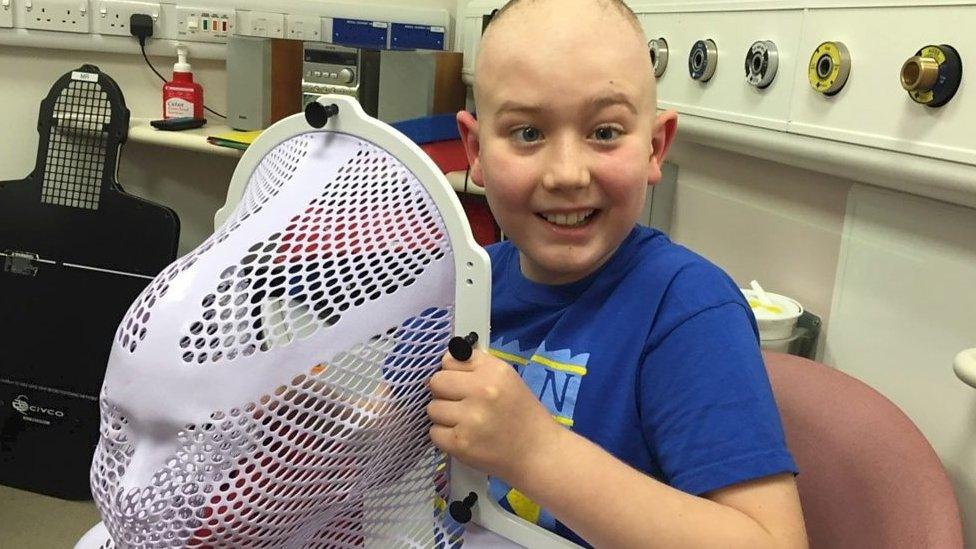
- Published4 April 2017
